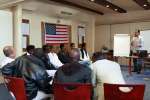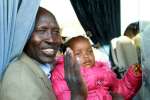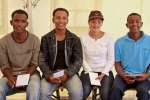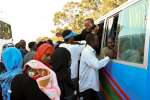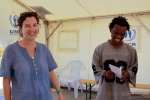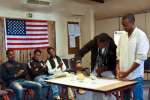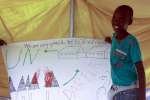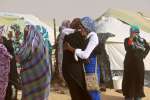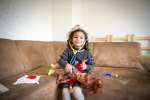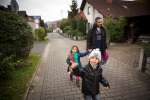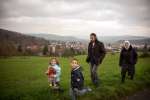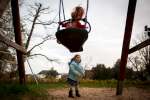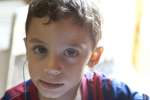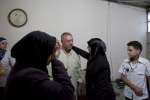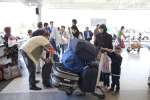UNHCR holds training courses in a bid to combat resettlement fraud
News Stories, 4 December 2006

NAIROBI, Kenya, December 4 (UNHCR) – In a stepped up bid to combat fraud, the UN refugee agency has held a special training course for frontline staff in its resettlement programmes for refugees in Africa.
Some 30 participants from more than a dozen UNHCR offices in eastern, central and southern Africa took part in the workshop last Thursday and Friday. They were taught about a wide range of practices to watch out for, including identity and document fraud, accounts of phony security incidents or events, fake medical reports and bribery.
The course was also attended by government representatives of the United States, Canada and Australia – three of the major resettlement countries – as well as an International Organization for Migration official. Similar training workshops are planned for West Africa and Asia. The training is one of a number of initiatives undertaken by the resettlement service to enhance counter-fraud activities.
"It is particularly reassuring to us to see that UNHCR is doing something about resettlement fraud and that there is transparency in dealing with it. It gives us more confidence," said Canadian diplomat Tracy Vansickle.
In 2001, resettlement programmes for more than 150,000 refugees living in Kenya were suspended after it was discovered that a criminal network had infiltrated UNHCR's refugee status determination and resettlement processes in Nairobi to force bribes from people seeking resettlement to third countries. Measures have since been introduced to prevent such fraud, but the agency remains on the alert for new scams, including use of the internet.
"It is clear that the vast majority of refugees are law-abiding. However fraud – from individual cases to larger scale criminal enterprises – serves to undermine and even threaten this important protection tool and durable solution," Vincent Cochetel, UNHCR's director for resettlement services, said in a written message to the participants at the two-day workshop.
Resettlement, repatriation and local integration are the three so-called durable solutions that UNHCR aspires to provide for refugees. Some 50,000 people find homes in third countries every year with the agency's help.
Cochetel said it was essential to step up efforts to combat resettlement fraud because "the consequences can be detrimental, above all, to refugees as resettlement programmes may be suspended indefinitely as a result of fraud."
In the class on identity fraud, a UNHCR protection officer told the workshop about a refugee from Eritrea who had presented herself as an Ethiopian national because she believed this would boost her chances of resettlement. The refugee spoke Amharic – a language spoken in both Ethiopia and Eritrea – which made early detection of the fraud difficult.
Another UNHCR participant said she had come across cases of Burundian refugees presenting themselves as Rwandan nationals. Rwanda and Burundi have the same ethnic make-up.
UNHCR staff said that in some cases refugees registered non-family members as their relatives in an attempt to benefit from more assistance. When it came to processing for resettlement, they claimed that the relative was dead. "We have seen false death certificates, particularly when families are unable to produce children registered in the family unit," a protection officer told the workshop.
A fraud officer from the Canadian High Commission in Nairobi said DNA testing was increasingly being used by immigration services to determine family connections. However, the Canadian official acknowledged that the high cost of DNA testing limited UNHCR's ability to use the tests regularly.
UNHCR staff were urged to remain vigilant for "red flags" or signs of possible fraud or corruption such as sudden unexplained wealth of individuals involved in the resettlement process. Participants also prepared a list of situations which could create opportunity for fraud and corruption in UNHCR offices.
"If your systems are weak and the management oversight in resettlement is modest or inadequate, it all comes together to create an opportunity for fraud," warned Ted Tunis, the lead trainer at the workshop.
By Millicent Mutuli in Nairobi, Kenya




